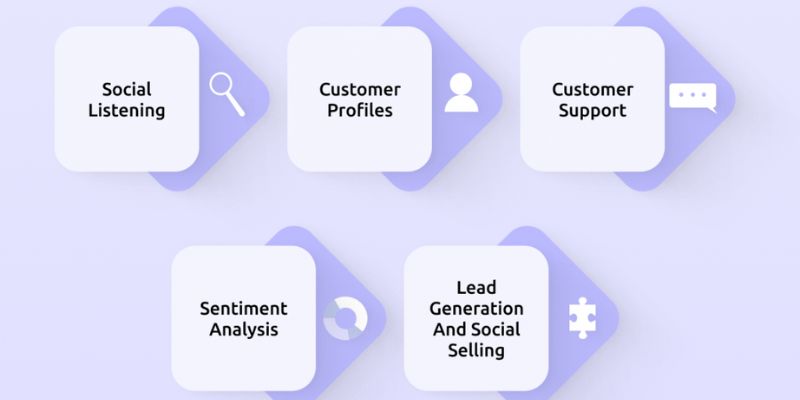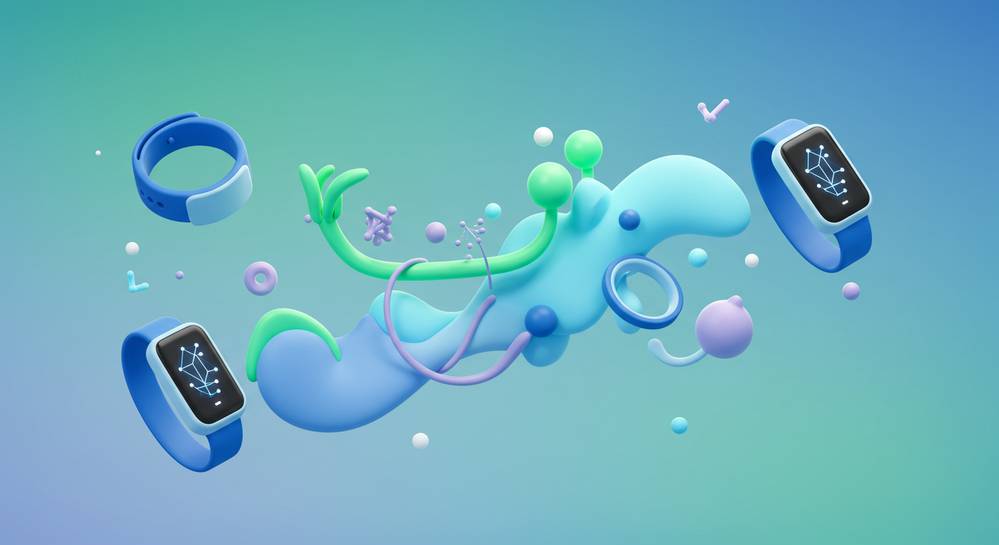Choosing the best CRM platform for your business can be tough. You want something that will make managing your relationships and sales as smooth as possible. But how do you decide when there are so many out there? It’s time to analyze and compare features of leading CRM platforms. I’ll help you break down the nitty-gritty on what makes Salesforce and HubSpot the top contenders. We’ll dive deep into their features, usability, and how they can streamline your customer support and sales process. From automation capabilities to gaining data-driven insights, understand how customization can serve your unique business needs. Get ready to make an informed decision that can transform the way you interact with your customers!
Analyzing Top CRM Competitors: Salesforce and HubSpot
Evaluating Comprehensive Features
When we stack Salesforce against HubSpot, it’s like a tech face-off. Salesforce shines in lead management. It does a bang-up job tracking leads. On the other hand, HubSpot is a champ at user-friendliness. Newbies love it because it’s easy to learn.
Both have ace features for managing contacts within their tools. They let you stash your customer info in one spot. Keep those details safe and sound. So, who wins? Tough to say. Each comes with cool bells and whistles. They offer marketing automation that’s top-notch. This means sending emails and setting up campaigns is a breeze.
What about sales pipeline management? Salesforce takes the cake here. It lets you spot trends and outcomes quick and easy. It’s all about having the right tools to close deals faster.
Looking at integrations, they’re both pretty chummy with other apps. Hook them up to the tools you already use. Say bye to jumping between apps.
Customization? Salesforce is king! It lets businesses tweak away. HubSpot has a few neat tricks up its sleeve, too. CRM mobile app features? Check. Both Salesforce and HubSpot make life on-the-go a whole lot easier.
Usability and User Experience
Diving into how easy these CRMs are to use, HubSpot wins hearts. It’s super user-friendly – almost like playing a game. Picture dashes, buttons, and menus all making sense from the get-go. Salesforce? It packs a punch with features. But with that, it asks for more time to learn the ropes. Its platform is a goldmine for power users who have got the time to dig deep.
But what about folk just starting out or small businesses? That’s where HubSpot has the edge. It’s a trusted pal for small and medium-sized businesses. It’s less complex, and that means folks aren’t pulling their hair out trying to use it.
Considering cloud-based solutions? Both come through with flying colors. They keep your data in the cloud – safe and ready whenever you need it.
All said, Salesforce and HubSpot are top dogs for a reason. They’re reliable, smart, and they bring the goods – from security to task management. They both talk the talk and walk the walk. The best part? They keep getting better, adding new stuff that businesses really need.
So there you have it. Salesforce and HubSpot, both throwing haymakers, both gunning for the top spot. They have the muscle in features and the finesse in user experience. Your pick? It boils down to what your biz needs. Big or small, simple or complex – there’s a fit for every fight.

Managing Customer Relationships and Support
Contact Management and Interaction Tracking
Contact management is key in any CRM tool. It shows you who your customers are. It gives you a view of past talks with them. This helps you serve them better. Let’s dive into how Salesforce and HubSpot handle this.
Salesforce shines by giving deep details on every contact. It logs calls, emails, meetings, and more. This means you can track all talks with a customer. It helps you see the whole picture. HubSpot also keeps track of interactions. But it’s known for a clean layout that’s easy to use. This makes finding info quick and simple.
When comparing contact management, think about your team’s needs. Do they want lots of detail or a simple view? Both Salesforce and HubSpot offer great features. But they differ in how they show info and what they track.
Assessing Customer Support and Service Features
Good customer support can make your business shine. Both Salesforce and HubSpot know this. They offer tools to help you. Let’s look at how they help you help your customers.
Salesforce has Service Cloud. This tool lets you help customers in many ways. You can set up a help desk, manage cases, and track customer issues. It also lets you give support over the phone, chat, email, or social media. HubSpot provides a service hub. It comes with ticketing, live chat, and knowledge bases. These tools help your team track and solve customer problems fast.
When checking out service features, ask this. What channels do your customers use most? Both platforms offer multi-channel support. But the best one for you depends on what your customers prefer. Salesforce is big on options and flexibility. HubSpot focuses on ease of use and fast setup.
Choosing the right CRM for customer support and contact management is vital. Salesforce gives you depth and detail. HubSpot gives you speed and simplicity. Think about what matters most for your business. Then you can pick the best tool to help your customers and track your contacts. It’s all about making each customer feel heard and helped. And that’s a win for any business.

Automating Marketing and Sales Processes
Marketing Automation Capabilities
When you look at Salesforce and HubSpot, you see they pack a punch in marketing automation. These tools help you catch leads and talk to them right. How do they compare, though? Salesforce shines with deep options that let you fine-tune your emails and campaigns. It’s rich in features but can be tricky to learn. HubSpot is friendlier to use, with a clean design and handy tips. It’s great for businesses starting out or scaling up. You can make forms, emails, and more without a sweat. Plus, both let you see how you’re doing with easy-to-read stats on your marketing moves.
Sales Pipeline and Lead Management
Now, managing leads and watching your sales grow, that’s where a solid CRM becomes your best buddy. Both Salesforce and HubSpot offer top-notch lead management. Picture all your leads in one place, sorted just how you like them. You won’t miss a beat with tasks and meetings lined up, too. Salesforce has a super detailed setup with ways to score your leads and see hot prospects. HubSpot keeps it simpler which can be just what you need to get going fast. In a world where time is money, both CRMs help you save both, with alerts and reminders that keep your eye on the prize.
In this battle of titans, Salesforce gives you power and depth, while HubSpot hands you ease and quick results. Choose the one that’s right for how you do business. It’s not just about smart tech; it’s about what helps your team rock their jobs and help your company thrive.
Data-Driven Insights and Customization
CRM Data Analytics and Reporting Tools
Let’s talk numbers. But not the sleepy kind. Think of CRM data analytics like a superhero. This hero can spot sales trends, save at-risk deals, and celebrate wins. Now, meet two hero helpers: Salesforce and HubSpot. They show you the story behind the sales with tools that make sense of data.
Salesforce has reports that work overtime. Want to check team performance or find top customers? Easy. Dashboards offer live views of data that help you make smart choices fast. HubSpot gives similar superpowers. It turns data into easy reports that show you what’s working. It helps in making the next big sale.
But what about mingling data with other apps? Integration is the key. Salesforce plays well with others, like email and social media tools. HubSpot also shines here with many tools ready to connect. If your apps are friends with your CRM, work gets easier.

Customization and Integration Options
Customization is like picking toppings for a pizza – you get what you want. Both Salesforce and HubSpot understand this. They let you tweak and twist features to fit your business just right.
Salesforce is a master of change. It lets you adjust almost everything. This means your CRM grows with you, learning new tricks as you need them. HubSpot is not far behind. It lets you add and shape features to meet your team’s style. They both know that your business is one of a kind.
Integrations offered by CRM providers like these lift heavy burdens off your team. They bridge gaps between different business functions. For example, customer service tools that plug into your CRM can talk to sales or marketing tools. This teamwork can turn a mess of info into clear plans and actions.
CRM mobile app features matter too. If you’re on the go, your CRM should be too. Both Salesforce and HubSpot have mobile apps that help you stay on top of things, whether you’re in a cab or a coffee shop.
Lastly, let’s chat about ease of use. Because if it’s a pain, you won’t want to use it. Salesforce and HubSpot aim for clear and simple designs. This makes jumping into their tools less of a headache. They work hard to make sure you don’t have to.
Clearly, these two CRM heroes have a lot to offer. They serve up data-driven insights on a silver platter. Plus, they let you dress them up in ways that work just for you. Your business is unique. Your CRM should be too. Whether it’s Salesforce or HubSpot, pick the platform that molds to your needs. Choose the one that lets you grow and change. And enjoy the ride as your customer relationships become stronger, smarter, and more successful.
In this post, we dove deep into CRM giants Salesforce and HubSpot. We explored their features, user experience, and how they manage customer relations. We also looked at how these platforms help with marketing and sales automation, as well as their data insights and customization tools.
My final thoughts? Choosing the right CRM can boost your business. Salesforce and HubSpot offer unique strengths. Salesforce excels in data analytics and reporting, while HubSpot shines with user experience and ease of use. Consider your team’s needs and your business goals before picking one. Both can support your growth, but the best fit depends on your specific situation. Whichever you choose, a good CRM is key for customer success and business expansion. Choose wisely!
Q&A :
What are the top CRM platforms available today?
When evaluating the leading CRM platforms, potential users typically look at popular options such as Salesforce, HubSpot CRM, Zoho CRM, and Microsoft Dynamics 365. Each of these platforms offers a unique set of features tailored towards different business needs, from sales and marketing automation to customer service and analytics.
How do CRM platforms differ in terms of functionality?
CRM platforms can vary widely in terms of functionality. Some provide comprehensive solutions that include sales automation, customer service tools, marketing automation, and analytics, while others focus more specifically on certain aspects, such as contact management or lead tracking. Businesses should analyze the specific features offered by each platform, such as lead scoring, email marketing integration, or AI-driven insights, to determine which CRM aligns best with their operational needs.
What factors should I consider when choosing a CRM platform?
Selecting a CRM platform is a critical decision that requires considering several factors, including:
- Pricing and scalability: Ensure the CRM can grow with your business without becoming cost-prohibitive.
- Customization capabilities: Assess how easily the platform can be tailored to fit your unique business processes.
- Integration with other tools: Look for CRMs that seamlessly integrate with your existing software stack.
- User experience: Prioritize platforms with intuitive interfaces that decrease the learning curve for your team.
- Customer support and community: Check the level of support provided and whether there is an active user community.
How important are analytics and reporting features in a CRM?
Analytics and reporting are vital features of any CRM platform as they allow businesses to track performance, understand customer behaviors, and make data-driven decisions. When analyzing CRM features, look for robust reporting tools that offer customizable reports, real-time data, and the ability to track a variety of metrics from sales performance to customer engagement.
Can I switch from one CRM to another without losing data?
Switching from one CRM platform to another can be done without losing data, but it requires careful planning. It is important to consider the data export capabilities of your current CRM and the data import capabilities of the new one. Generally, CRMs allow exporting of data in common formats like CSV or Excel files. However, working with a professional or using dedicated migration tools is recommended to ensure a smooth transition and prevent data loss.



